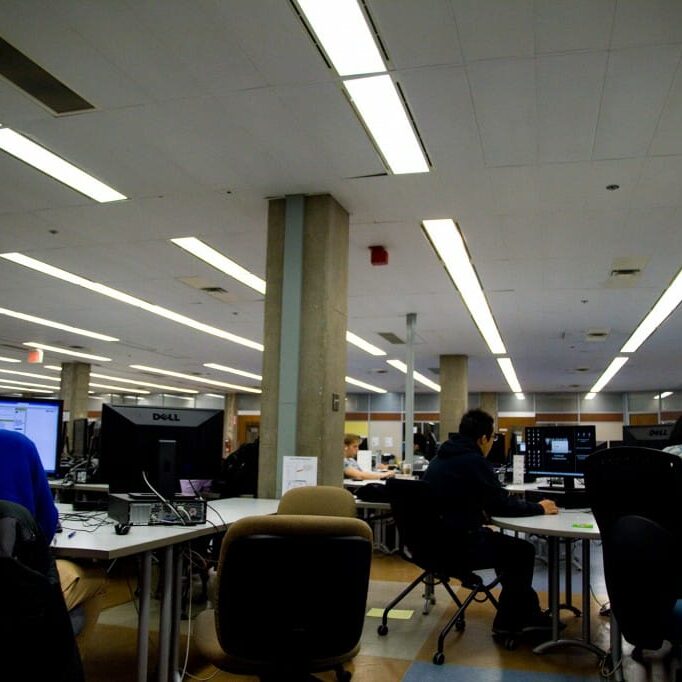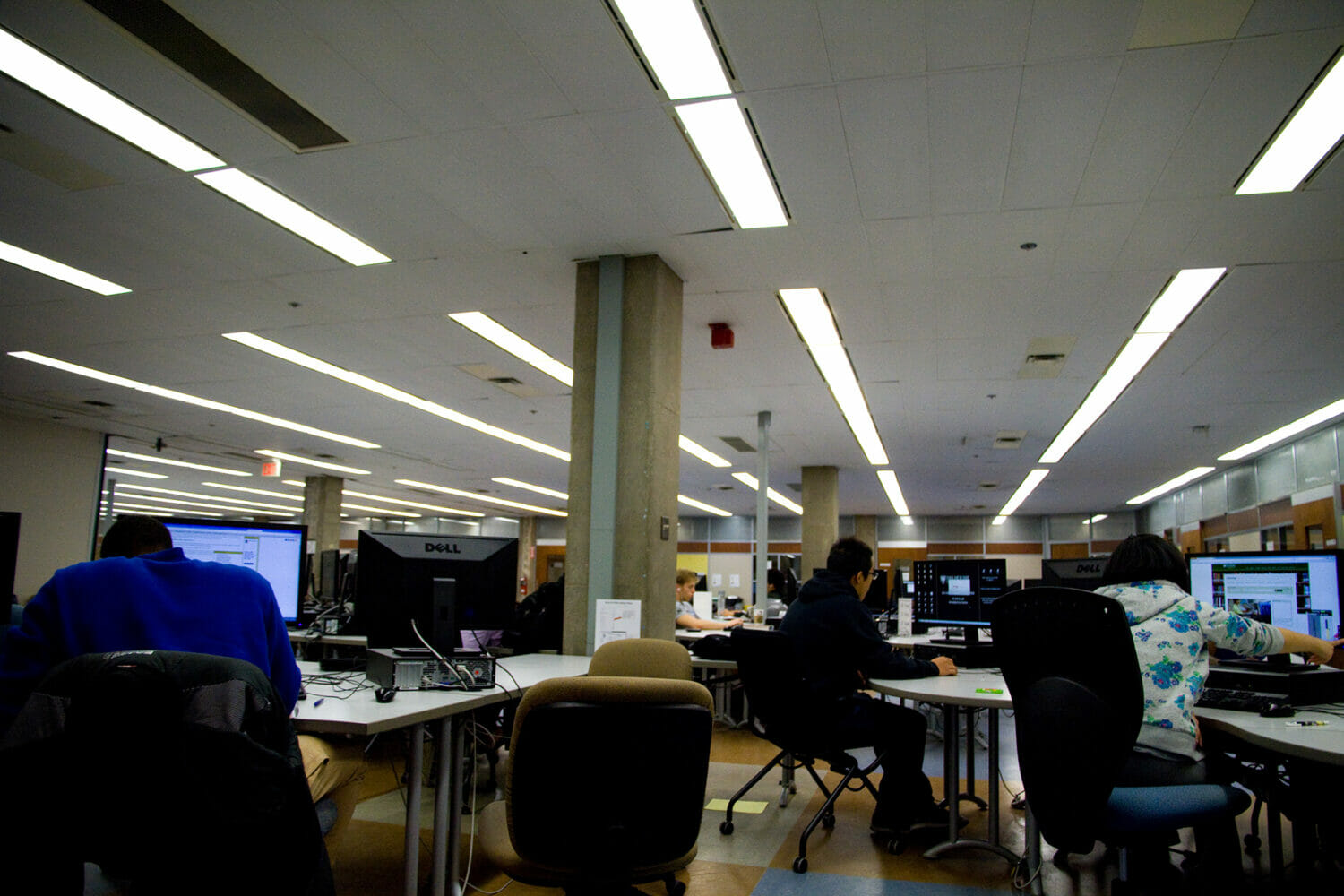

The fight isn’t over. Cutting acquisitions will damage research prospects for professors and students (Photo by Bryn Karcha)
With hours at the Killam Memorial Library reinstated after being reduced earlier this semester, students have a right to celebrate. This action is due entirely to student feedback and an effective petition organized by Emma Herrington and the Dalhousie Science Society (DSS). The petition, which garnered over 1,000 signatures in a single day, served as a clear demonstration to librarians and university administration that students will not sit silently as services and resources are reduced. Yet this little victory, while important, does nothing to resolve a much bigger problem.
The cuts to library hours were made as a result of a 3.5 per cent reduction to the library’s operating budget. As blog posts by Dalhousie librarians make clear, while library hours are being reinstated, there has still been a $600,000 reduction to Dal’s library budget. These cuts, not immediately visible to students, still have major implications for our libraries. For example, new acquisitions are now completely frozen for the current year, and will likely be frozen for the next year as well. This means that no new books or periodicals will be purchased. It also means the number of periodicals and databases that students and faculty have access to is being greatly reduced, in some cases without consultation with those who may rely on them for research. Perhaps more frightening is that many of these cuts and changes will not be made visible to students or faculty until they have already been made, similar to the way library hours were initially reduced without consulting students. Reinstating Killam Llibrary hours is not solving the problem of major cuts to the library budget; it is simply rearranging the way these cuts are being managed.
By appeasing students’ demands regarding library hours, Dalhousie has effectively silenced student criticism by appearing to listen to students’ demands and giving them something back. The reality is they are simply changing what is being taken away—an effective strategy since the individual resources that will likely disappear in place of library hours will not impact the student body at large. Instead, the search engines, books, periodicals and other services that will now be cut will likely impact small groups: individual students, professors, departments and faculties. Just as it is much harder for an individual to rally students to petition the removal of a single periodical that only a few will ever use, it is much easier for the university to ignore that same student when they complain that their research resources are inadequate. So yes, students, be happy that you made your voices heard, and be happy that you got your library hours back, but please, don’t stop criticizing Dal’s allocation of funds.
Dalhousie University considers itself one of Canada’s leading educational institutions, yet in the last few years we have seen major cuts to faculty budgets. This has led to larger class sizes and the inability to hold on to qualified professors, the elimination of whole departments, such as food science, linguistics, and Italian, and a massive reduction in funding to academic services like libraries. Meanwhile, the university continues to focus on rebranding their image through infrastructure development and excessively expensive inaugural ceremonies (think about the cost of eight international executive-class flights and accommodation). While it’s undeniable that appearances matter, to what extent does Dalhousie want to be known as “the corporate university that cares more about appearances than quality education?” I ask, because this is the image I now have of Dal, and this is the image that many current students and faculty are going to perpetuate.






